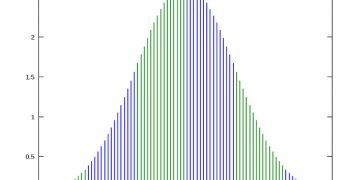A group of investigators in the United States has demonstrated that the sheer amount of how much a person can remember is a clear indicator of how high they will score in IQ tested.
The amount of details test participants remembered of each individual memory could not be established as a factor for determining the rate of fluid intelligence, which the IQ tests measure.
This type of differences in memory formation has been observed a long time ago. Some people remember most of the things they see in a specific instance or setting, but the details are all fuzzy, whereas others recall less things, but in more vivid detail.
According to the new study, conducted by researchers at the University of Oregon, it would appear that people in the first category are those who score a lot higher on tests measuring fluid intelligence.
This is not to say that the resolution (the amount of details) of the memory is not important. In some cases, it may very well make the difference between life and death. The team is saying that no relationship could be established between resolution and IQ.
“The number of things people can remember is robustly correlated with fluid intelligence – the larger number remembered, the higher the IQ,” explains Oregon Visual Working Memory and Attention Lab psychology professor Edward Awh.
“Resolution in memory is not predictive of IQ at all,” he adds. “Clarity relates to how well a person can detect small changes,” explains UO PhD student and lead author, Keisuke Fukuda.
In past experiments carried out at the university, people were demonstrated to be capable of storing only three to five memory items in their short-term memories.
Other studies have correlated the size of short-term memory to individual IQ levels, and so one can easily see a pattern emerging here, that explains the results of the new investigation.
In the latest issue of the scientific journal Psychonomic Bulletin & Review, the team writes that the level of clarity a person has of their memory is a measure of how experienced they are in specific domains of perception.
In the lab experiments the team conducted, some 79 students were asked to watch a computer screen, on which sets of either four or eight objects appeared.
After a second-long blank screen, one of the objects would be displayed again, and the participants asked whether the image had been shown previously.
In this manner, the group was able to identify the specific number of items our short-term memories can work with, as well as the maximum resolution at which these memories can be stored, PsychCentral reports.

 14 DAY TRIAL //
14 DAY TRIAL //